Department of Microbiology

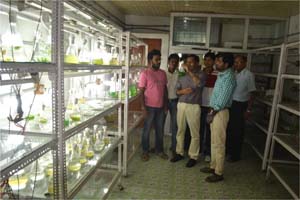 The department of Microbiology was established in the year 1981 as the first department in the entire state to impart advance teaching in this area with strong research/development backup. During the past two decades, this department has contributed significantly in the area of microbial diversity and biofertilization, mushroom biology and technology through various programmes funded by DBT, ICAR, NHB (Govt. of India). The department has a good collection of microbial germplasm – Cyanobacteria, Azospirillum, Azotobacter, Bacillus, Pleurotus, Agaricus, Tricholoma etc. In recent times, a constant effort for the domestication of mushroom through training, demonstration etc. by the department has resulted in livelihood improvement of poor section of the society of this state.
The department of Microbiology was established in the year 1981 as the first department in the entire state to impart advance teaching in this area with strong research/development backup. During the past two decades, this department has contributed significantly in the area of microbial diversity and biofertilization, mushroom biology and technology through various programmes funded by DBT, ICAR, NHB (Govt. of India). The department has a good collection of microbial germplasm – Cyanobacteria, Azospirillum, Azotobacter, Bacillus, Pleurotus, Agaricus, Tricholoma etc. In recent times, a constant effort for the domestication of mushroom through training, demonstration etc. by the department has resulted in livelihood improvement of poor section of the society of this state.
Microbial consortium for rice
A microbial consortium-based sustainable and economic bionutrient package for rice has been developed to reduce reliance on chemical fertilizer. The components of the package include Pseudomonas-enriched mycostraw, Azospirillum, and cyanobacteria for different niches. Enriched mycostraw had thrice the amount of nitrogen and sulfur, twice the amount of phosphorus and 1.3–1.9 times potash and micronutrients (Zn, Fe, Mn) than rice straw and showed a 17.3 C:N ratio. Such bionutrient package application for four consecutive years resulted in an increase in fertilizer use efficiency (5–10%), ARA activity, Azospirillum preponderance, and soil nutrients like total nitrogen (4–5%), total phosphorus (0.7–1%), organic carbon (14–16%) compared to the initial value. Improvement in all the above parameters was reflected in augmentation of grain yield (17%) and straw yield (14.1%). Validation of bionutrient package under participatory mode for consecutive five years resulted an increase of 10.6 % and 20.1 % rice grain yield in resource rich and resource poor farmers, respectively, over the farmers’ conventional practices. ( For details — Agroecology and Sustainable Food system( J. of Sustainable agriculture).2013 ; 37 : 1-23.
Awards
Swami Sahajanand Saraswati Outstanding Extension Scientist award (ICAR) to Dr. Dayaram
Protocol for the cultivation of mushroom
Protocol for cultivation of mushroom throughout the year in Bihar has been standardized as shown graphically.
Extension Activities
Domestication of mushroom production technology
Domesticated the mushroom production technology through training capsule on mushroom cultivation and spawn production through demonstration and display in Kisan mela, Krishi ghosti, villager’s site, mass media etc. Established a network of mushroom growers for proper technical advice, marketing and organized mushroom farming. Learning materials on mushroom production technology has also been developed and distributed to the users community. Counceling to the farmers on cyanobacterial biofertilizer and microbial consortium is also being provided.
Creation of entrepreneurs
Developed a human resources pool of 1693 on mushroom cultivation and 78 on mushroom spawn production, covering entire state. Technical guidance to trained personal resulted establishment of thirty one spawn production units in different districts of Bihar. Many poor families of Ranitola village of Samastipur district adopted mushroom as their source of livelihood. Translated the technology in each district of Bihar and many small entrepreneurs on mushroom production emerged in recent years due to our effort but still not in organized manner.
Microbial Expo
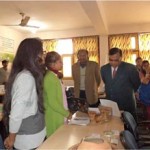 A microbial expo was organized during the year 2013 by the student of B.Tech (Biotechnology) in the department of Microbiology . Honorable Vice Chancellor Dr. R. K. Mittal inaugurated the event. Students displayed the microbial product viz. Neera: a health Drink; Azospirillum biofertilizer, Potato bread, Bacillus thuringensis based pesticide, Rhizobium biofertilizer, Cyanobacteria biofertilizer, Vinegar, Biochemical agents for pimples etc. developed by them under industrial microbiology programme. Vice chancellor appreciated the effort and suggested them to convert their innovative thought into commercial venture.
A microbial expo was organized during the year 2013 by the student of B.Tech (Biotechnology) in the department of Microbiology . Honorable Vice Chancellor Dr. R. K. Mittal inaugurated the event. Students displayed the microbial product viz. Neera: a health Drink; Azospirillum biofertilizer, Potato bread, Bacillus thuringensis based pesticide, Rhizobium biofertilizer, Cyanobacteria biofertilizer, Vinegar, Biochemical agents for pimples etc. developed by them under industrial microbiology programme. Vice chancellor appreciated the effort and suggested them to convert their innovative thought into commercial venture.
ONGOING RESEARCH PROJECTS
- AINP on Soil biodiversity and Biofertilizers
- AICRP on Mushroom
COMPLETED RESEARCH PROJECTS
| S.No. | Project Title | Funding Agency |
|---|---|---|
| 1 | Adhoc research project on cyanobacterial biofertilizer | DBT/ICAR |
| 2 | Adhoc research project on agromicrobes –pesticide interaction | DBT |
| 3 | Demonstration of mushroom spawn production technology in Bihar | NHB |
| 4 | Adhoc research project on mushroom production technology & dessimination | RKVY/Macromode |
| 5 | Experiential learning on mushroom production | ICAR |
| 6 | Ecology of diazotrophic cyanobacteria and their potential in soil plant nutrition | DBT |
| 7 | Sustaining rice productivity through cyanobacterial biofertilizer in Bihar paddy soils | DBT |
| 8 | Use of natural carriers (Biomass) for augmenting shelf life and quality of cyanobacterial biofertilizer | ICAR |
| 9 | Improvement in Dalbergia sisoo to reduce mass mortality. | ICAR |
Faculty Strength
| S.No. | Name | Position | Specialization | Contact No. | E-mail Id |
|---|---|---|---|---|---|
| 1. | Dr. M.N. Jha | Professor | Algology, Plant-microbe interaction | 6204934440 | |
| 2. | Dr. Dayaram | Professor | Mushroom biology and fungal taxonomy | 9430464088 | dayaram@rpcau.ac.in |
| 3. | Dr. (Mrs.) Geeta Kumari | Assistant Professor | 9801332824 | geetasri.kumari5@gmail.com | |
| 4. | Dr. Khem Raj Meena | Assistant Professor | Microbiology | 7018942915 | krmeena@rpcau.ac.in |
| 5. | Mr. Aman Jaiswal | Assistant Professor | Microbiology | 7982654782 | aman.micro@rpcau.ac.in |
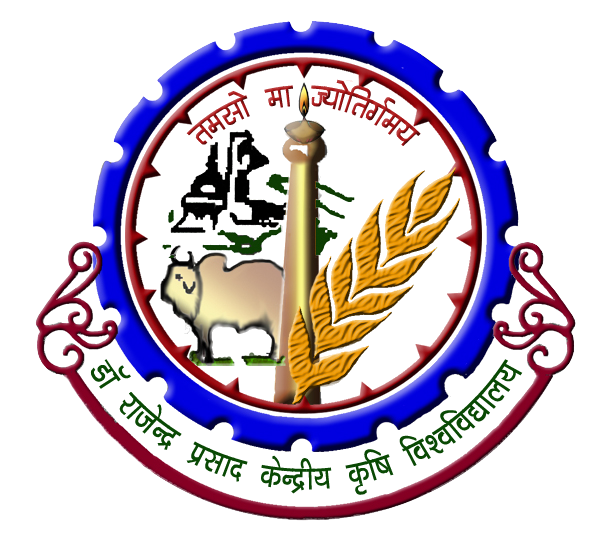
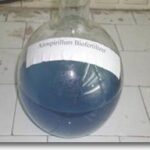
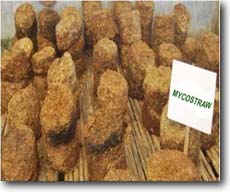
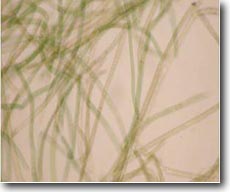
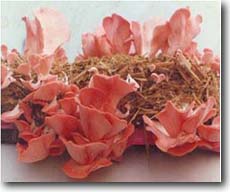
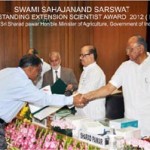







 Users Today : 470
Users Today : 470